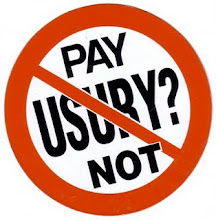Using Innovation And Technology To Stimulate Your Local Economy
One week before world leaders gather for the G8 Summit, Ashoka joins the Bill and Melinda Gates Foundation, the United Nations Development Programme, the United Nations Foundation, Mashable and the 92nd Street Y to launch G-Everyone, a day of dialogue that invites everyone to share their ideas on how to address global challenges. We asked two Ashoka fellows: How can innovation stimulate your local economy?
Ken Banks is an Ashoka fellow and founder of FrontlineSMS, Means of Exchange and Kiwanja.net. His most recent project, Means of Exchange, looks at how emerging, everyday technologies can be used to democratise opportunities for economic self-sufficiency, rebuild local community and promote a return to local resource use, leading us to a better, fairer, more locally connected world.
Technological innovation is something of a double-edged sword when we think about its impact, and role, in stimulating local economies. Today's globalised world has been largely made possible by innovations in technology – more recently the mobile phone and the internet. We can now purchase and consume cheaper and cheaper products from further and further away, enjoying beans from Kenya and bananas from the West Indies all year round, and communicate 24/7 with strangers in countries we've never visited. What we've been left with is a world where global dominates local, where anything happening anywhere else is more important than what's happening on our doorstep, and countless communities of people less and less connected with local resources, local businesses and each other.
The very same technologies, if used innovatively and with imagination, can reverse that decline. Online maps, location-based services, mobile apps and social media can all help bring people's attention and behaviour back towards one of local consumption and engagement. Local currencies, which are already in use in a number of towns across the UK, can help keep money in local economies, and LETS schemesencourage people to use their time and skills as a kind of currency. Barter exchanges, clothes swaps and community gardens can also help bring people back together and help build resilience at community level. Technology can help drive awareness and engagement, and promote convenience, in all of these activities.
That said, many of these kinds of initiative are nothing new. Most have been around for years, and there are countless success stories out there if you look hard enough. The majority of these pockets of success have remained small in scale, though, and many only work because a small number of dedicated local activists work hard to keep them going. What's more, the people that take part are often the ones who are already converted to the cause, or older members of a community already sympathetic to the local agenda. As is often the case, it's innovation at behavioural level that's most challenging. It rarely has anything to do with technology.
Means of Exchange hopes to understand why so many existing initiatives fail to replicate and scale, building the community needed to bring in "new blood", and bringing in the skills required to leverage digital tools that allow for meaningful scale. What we need to do is highlight approaches that work, and tease out the factors that make them succeed. We also need to understand how social media and mobile technologies could strengthen these activities, explore gamification techniques and consult experts to understand how activities should be branded and marketed for mass appeal. There is huge potential in using technology to stimulate behaviours which can lead to local economic development, but much of it is yet to be realised."
Rob Hopkins is an Ashoka fellow and founder of the Transition Network. He believes in three principles: take action, go local and incentivise every person to find practical solutions. These underpin the Transition Movement he created, which tackles climate change while strengthening the capacity of communities to withstand the impact of peak oil.
In increasingly uncertain times, one of the key things we need to generate is community resilience. Much that is proposed in the drive for economic growth can actively undermine that resilience and evidence shows that local, independent economies contribute to local resilience significantly better than large chain businesses.
Innovation is already emerging in the form of pop-up shops, craft breweries, community renewable energy projects, complimentary currencies, transition initiatives, innovative local food businesses and urban agriculture. Stimulating our local economies needs to be founded on the concepts of resilience, enhancing local economies, being as low carbon as possible, bringing assets into community ownership where possible and of enterprises having a wider social purpose than just being for profit.
The Transition movement is modelling this around the world, showing that stimulating your local economy starts within community, rather than being somehow dictated from outside it. It is modelling the shift from a dependency on inward investment to internal investment, spending our money and investing our money in ways that build and enhance community resilience. I think that that is one of the big economic ideas of our times.
Felicity McLean (@flickmclean) is working on Framework Change atAshoka.
NOTE: This article is originally published at this website:
posted by usuryfree @ 7:35 PM
![]()
![]()



0 Comments:
Post a Comment
<< Home